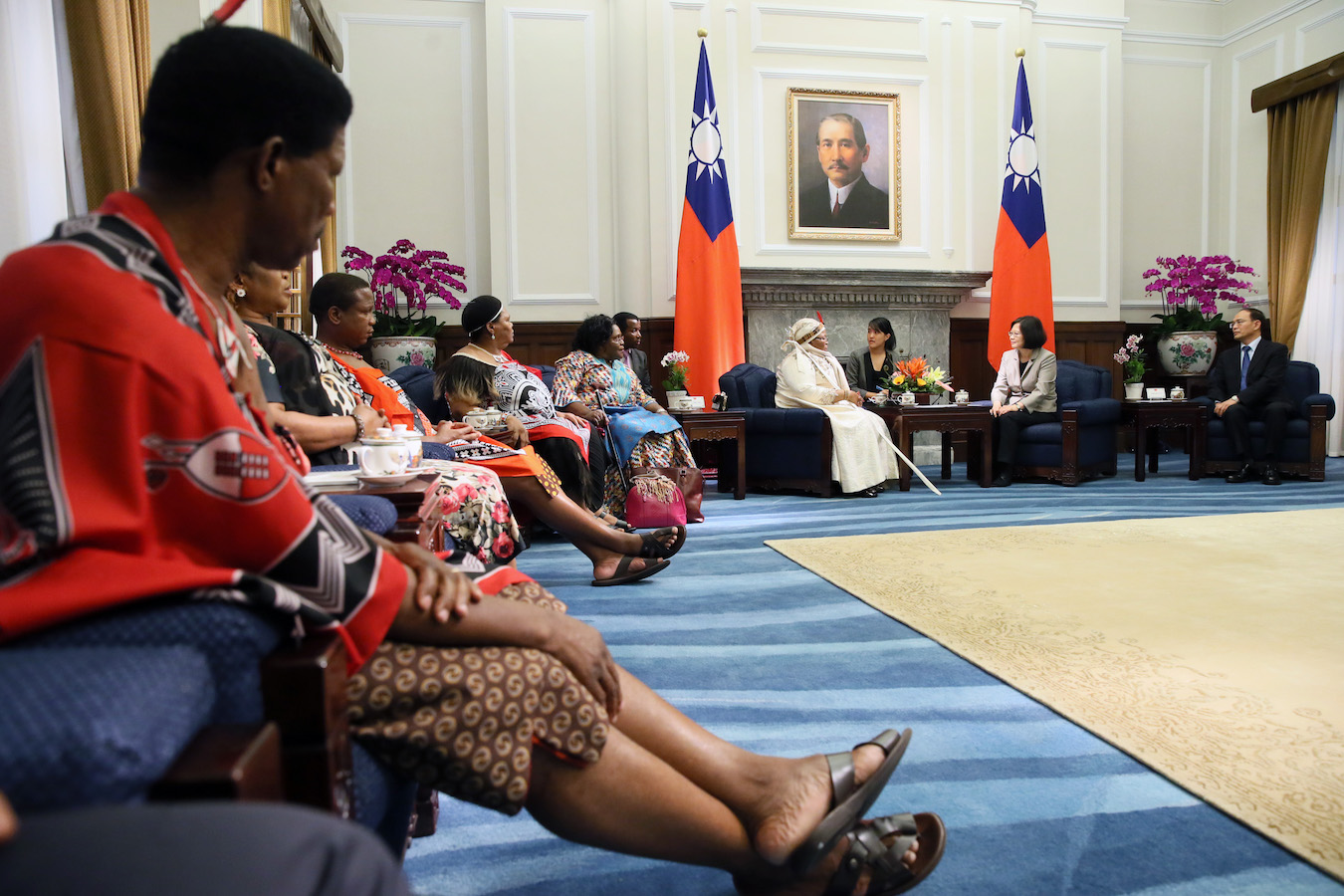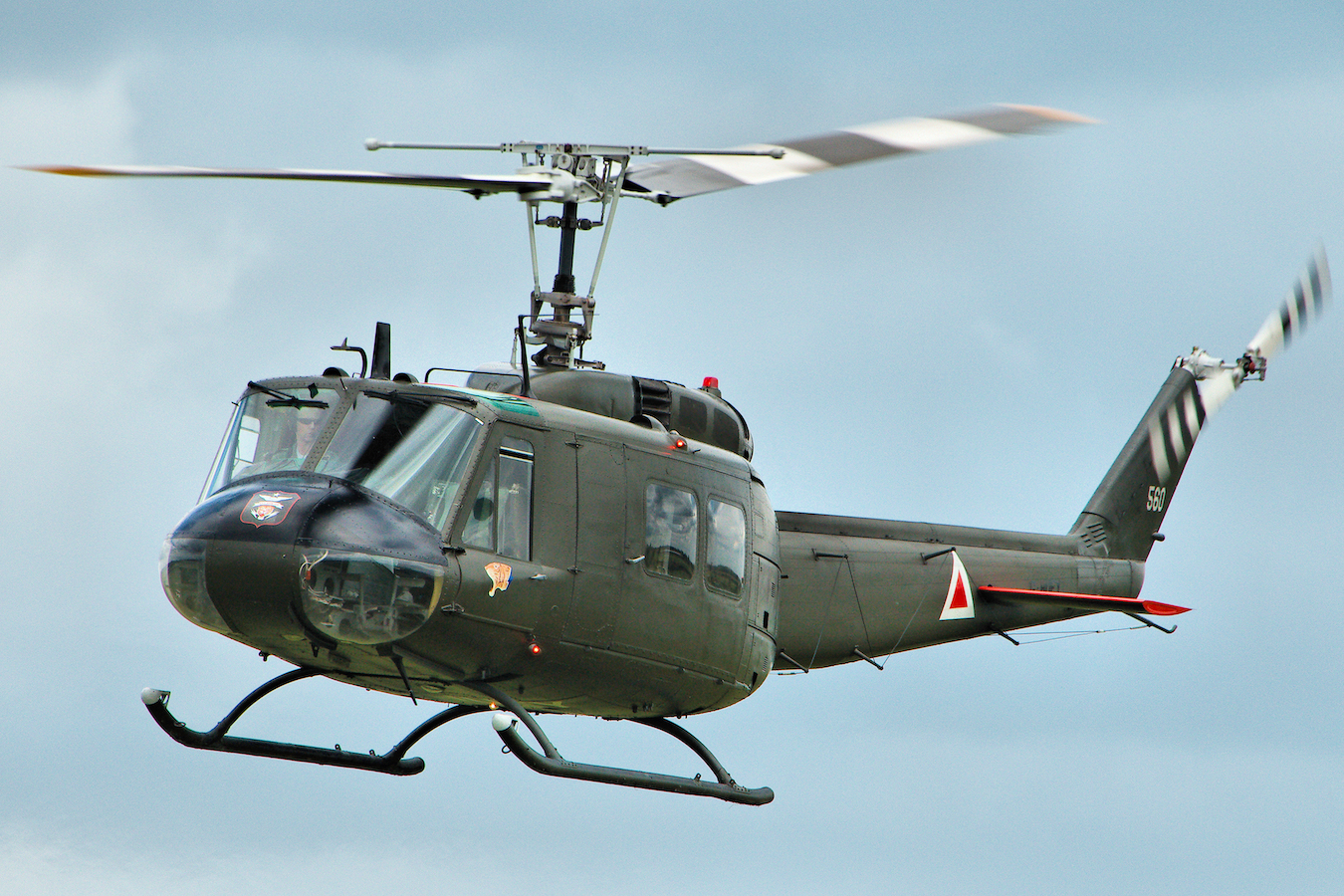by Fundizwi Sikhondze
語言:
English /// 中文
Photo Credit: Presidential Office/Flickr/CC BY 2.0
ESWATINI’S CONTINUED diplomatic relations with the Republic of China (Taiwan) have become an issue that has drawn attention both locally and internationally. This is particularly because Eswatini is now the only remaining country diplomatically linked to Taiwan in the continent of Africa. To many, Eswatini stands to lose out to China’s grand development program, on the other hand, there is also the belief that Taiwan is a long-time friend that cannot be abandoned at will.
The Eswatini-Taiwan diplomatic relations date back to September 1968, a few weeks after eSwatini acquired independence from Britain on 6th September in the same year. Since then eSwatini has steadfastly stuck with Taiwan despite the United Nations (UN), through resolution 2758 in 1971, and currently being the only country that has diplomatic links with Taiwan in the entire continent of Africa.
 Taiwanese president Tsai Ing-wen meeting with a delegation from eSwatini, including Ntombi Tfwala, the queen mother. Photo credit: Presidential Office/Flickr/CC BY 2.0
Taiwanese president Tsai Ing-wen meeting with a delegation from eSwatini, including Ntombi Tfwala, the queen mother. Photo credit: Presidential Office/Flickr/CC BY 2.0
Internally, within eSwatini, government officials are known for never missing out on an official engagement without extolling to the country’s citizens how beneficial the friendship with Taiwan is for Eswatini. Taiwan ambassadors are also active in the media where they routinely point out how great a friend they are (in comparison to the bully China, of course). eSwatini politicians and senior officials are known to go the extra mile internationally to present Taiwan as a victim of an unfair international system.
The Times of Eswatini (07-02-2020) reported that the Principal Secretary to the Eswatini Ministry of Health, Dr. Simon Zwane, had been heckled by an unnamed official from China during the 146th Session of the World Health Organisation (WHO) in Geneva. Dr Zwane had made remarks to the effect that, “We note that this in part was due to political conflicts or interference to some independent states and to WHO. One example is the Republic of China (Taiwan) that has limited access, if any, to the WHO international health regulations (IHR) processes. Taiwan’s technical experts are of late denied participation in technical meetings of WHO. This, unfortunately, leaves over 23 million people of Taiwan and others vulnerable to such epidemics yet we know that Taiwan has cutting-edge expertise that could benefit all of us”.
In the September 2022 address to the UN General Assembly, in keeping with the norm, eSwatini head of state King Mswati III remarked that, “We continue to appeal for Taiwan to be considered for full participation in the UN agencies, we are confident that the global village would benefit substantially from Taiwans meaningful participation in the UN system. The Kingdom of Eswatini calls upon the United Nations to make the necessary arrangements for Taiwan to significantly participate in relevant UN specialised agencies and mechanisms”.
One contradictory factor about the China-Eswatini-Taiwan triangle however is that according to the World Integrated Trade Solution (WITS) Taiwan is not even in the top five exporters to Eswatini. China (with export value of $118M), on the other hand, lies at number two with India (with export value of $54M), the United States of America (with export value $31M) and Japan (with export value of $23M) occupying the third, fourth and fifth positions respectively. South Africa, eSwatini’s economically dominant neighbour, is the largest exporter into Eswatini with export value of $1,147M. Taiwan’s exports into Eswatini are valued at a distant $13.7 M (Forbes Magazine 2020).
The Taiwan versus China politics have also found some expression in the local politics of Eswatini, itself fraught with divisions amongst a section of the population who want political change from the current governing system and a section that that wants the current regime to continue governing. In their back-and-forth political blame game those who a favour the maintenance of the current regime are quick to blame China for the efforts of those who want change. This, of course, is done without any proof being brought to the table.
On the other hand amongst the activists seeking political change and democracy, the Taiwan-eSwatini relations have become a subject of negative commentary because of the perception that Taiwan has involved itself in politically controversial episodes in the country in order to shore up the current regime. Amongst the most cited episodes is when Taiwan assisted the government of eSwatini to acquire an airbus A330 private aircraft for the exclusive use of King Mswati. The private jet for the king was not a popular purchase in a country where there is high unemployment and inequality is amongst the highest in the world.
 Photo credit: Airwolfhound/WikiCommons/CC BY-SA 2.0
Photo credit: Airwolfhound/WikiCommons/CC BY-SA 2.0
Further, in 2018 Taiwan donated two Bell military helicopters to the eSwatini army. The helicopters are widely believed to have been used to shoot down protesters during the bloody crackdown of the civil unrest in 2021. Tensions from the beliefs of pro-democracy activists led to a protest directed at the Taiwanese mbassy by pro-democracy activists calling on Taiwan to desist from interfering in the internal affairs of Eswatini in 2022.
Taiwan, however, has engaged in positive programs that have a direct positive impact amongst citizens, particularly programs related to vocational education of young citizens of Eswatini. In February 2023, the Taiwanese embassy together with the Eswatini Government launched a youth empowerment programme wherein young people who graduate in vocational training institutions are given tools and machinery as a start-up kit to their future.
The spectacle with Taiwan continues to find expression in the general tensions that are currently brewing in the global space particularly between China and the western countries in general but the USA in particular. Headlines from prominent western media companies have presented Eswatini as the country withstanding Chinese bullying. “The Kingdom China just can’t flip” is a June 8, 2018 CNN news story and “Eswatini sticks with Taiwan despite Chinese overtures” is what a August 22, 2018 BBC news story declared.
The global Taiwan and Chinese tensions continue to brew over and with the recent visit of the Taiwanese President Tsai Ing- wen to the USA and the recent switch by Honduras to China these tensions continue to brew. Given the internal dynamics in Taiwan as well it is clear that only time will tell how Eswatini political elites, either responding to international realities or to local needs will navigate these relations

